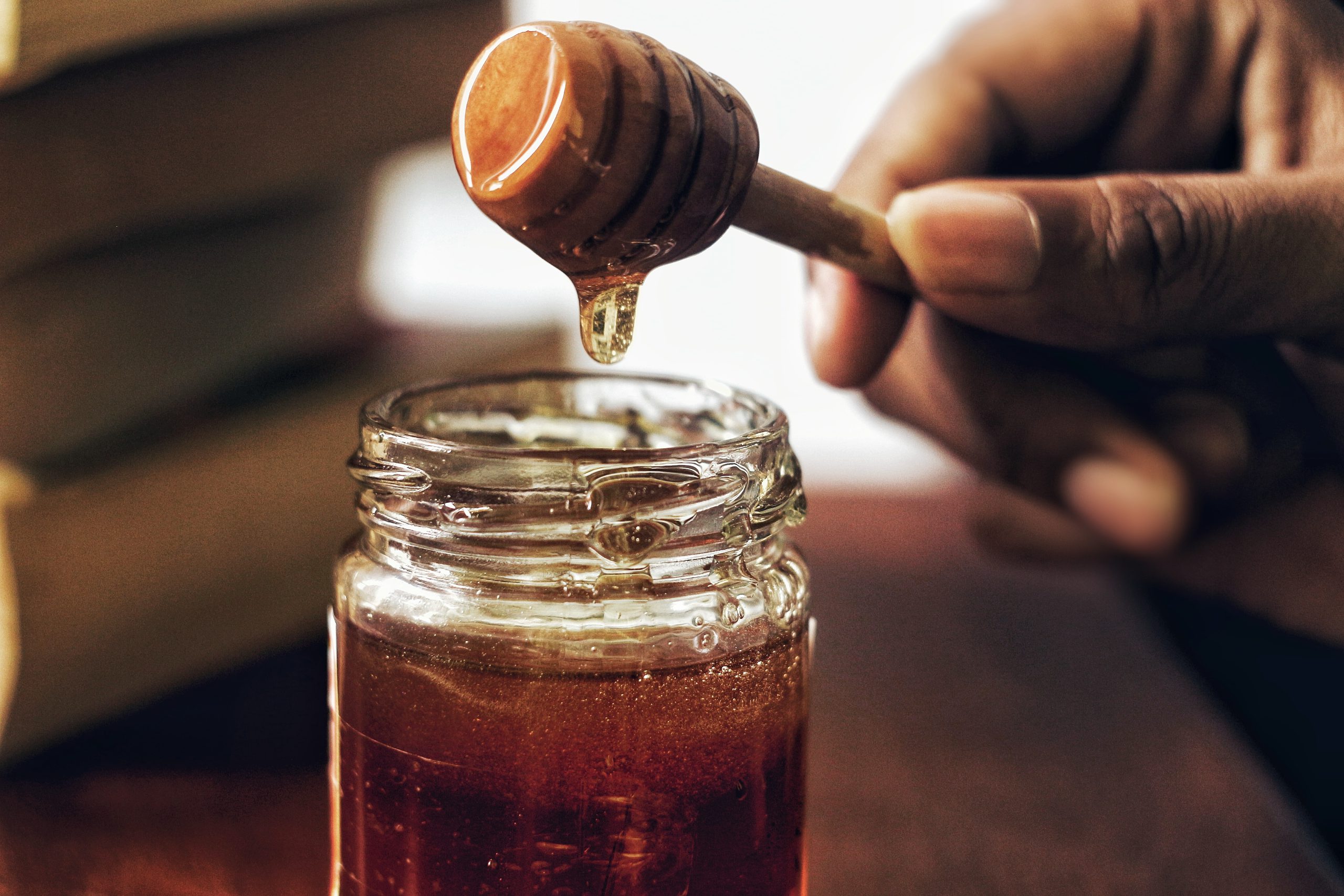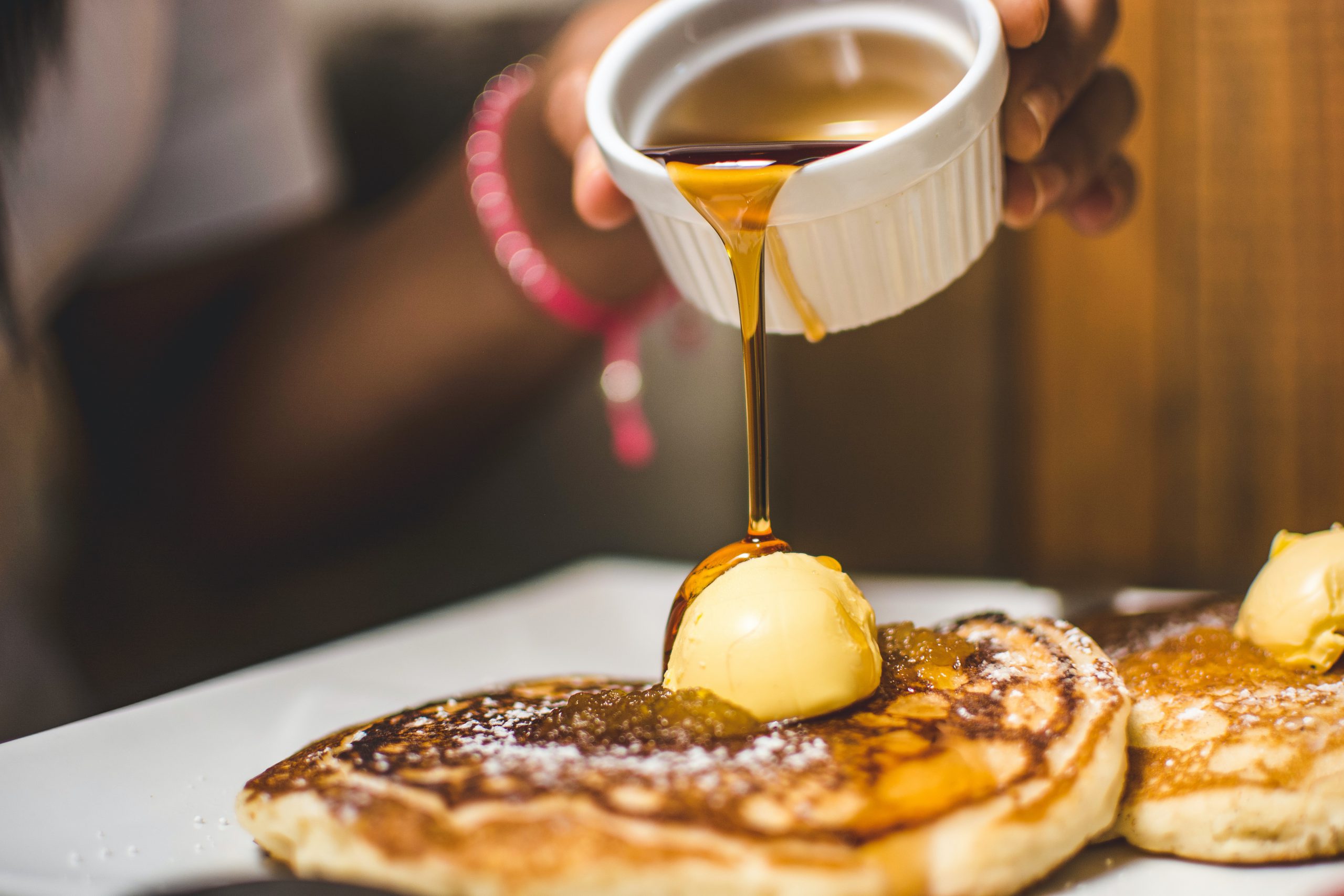Honey
Honey works as a delicious substitute for sugar due to its mild flavor and the fact that honey is sweeter than white sugar. As a general rule, the darker the honey, the stronger the taste, so for more delicately flavored goods, lighter honey is usually a better choice. Replacing one cup of sugar with ¾ cup of honey should be appropriate.
In addition to being sweeter than sugar, honey is also more acidic. When using honey as a sugar substitute in baked goods, add an ⅛ cup of baking soda for every one cup of honey to provide lightness.
Molasses
When used as a sweetener, molasses is an excellent source of selenium, iron, and copper which all play a role in maintaining healthy bones and fighting osteoporosis. Molasses is made from the thickened, boiled-down juice from sugar cane and sugar beets and has a long history with bakers in the Caribbean.
There are three types of molasses, and they each bring something unique to the kitchen. Light molasses has the highest sugar content and can be used as a 1:1 sugar substitute. Due to its mild flavor, light molasses also works well as a sweetener for oatmeal or some drinks.
Dark molasses are the type of molasses most commonly used in producing brown sugar. Dark molasses have a more robust flavor than light molasses and has a slightly lower sugar content. Dark molasses are the type of molasses most commonly used in producing brown sugar. Since this type of molasses is not quite as sweet, it will require a bit more to get the same level of sweetness. A good rule of thumb is one ⅓ cup of dark molasses to every cup of sugar.
Blackstrap molasses is the type that boils the longest and is the thickest. Blackstrap molasses also have the lowest sugar content of molasses and the most potent flavor. While 1 ½ cup of blackstrap molasses should provide the same level of sweetness as one cup of sugar, the taste of blackstrap molasses may be overpowering for more delicate baked goods.
Fruits
Sweet fruits like dates, bananas, and figs make great substitutes for individuals looking to lower their consumption of refined sugar. In most cases, pureed fruit is a ½ to ¾ replacement for white sugar, substantially reducing the glycemic level of the baked good. The additional fiber and potassium received from the fruit sweetener is a bonus.
Monk Fruit
When used as a sweetener, monk fruit is almost 200 times sweeter than granulated sugar, which means using less to obtain the same level of sweetness. In addition, monk fruit has zero calories and is suitable for baking and sweetening beverages. Unfortunately, monk fruit is not widely available in some parts of the U.S. and can be challenging to find on the store shelf.
Maple Syrup
Pure maple syrup has an impressive nutrient profile boasting high potassium, calcium, iron, and zinc levels. Maple syrup also contains several traces of essential nutrients not found in sugar. But for those looking to reduce calories by cutting out sugar, maple syrup may not be your best option.
Maple syrup is an excellent sugar substitute in many baked goods, but it adds more moisture to the recipe and a more robust flavor profile. Since maple syrup is several times sweeter, achieving the same level of sweetness will take less syrup. For most recipes, substituting one cup of sugar with ¾ cup of maple syrup should deliver outstanding results.

